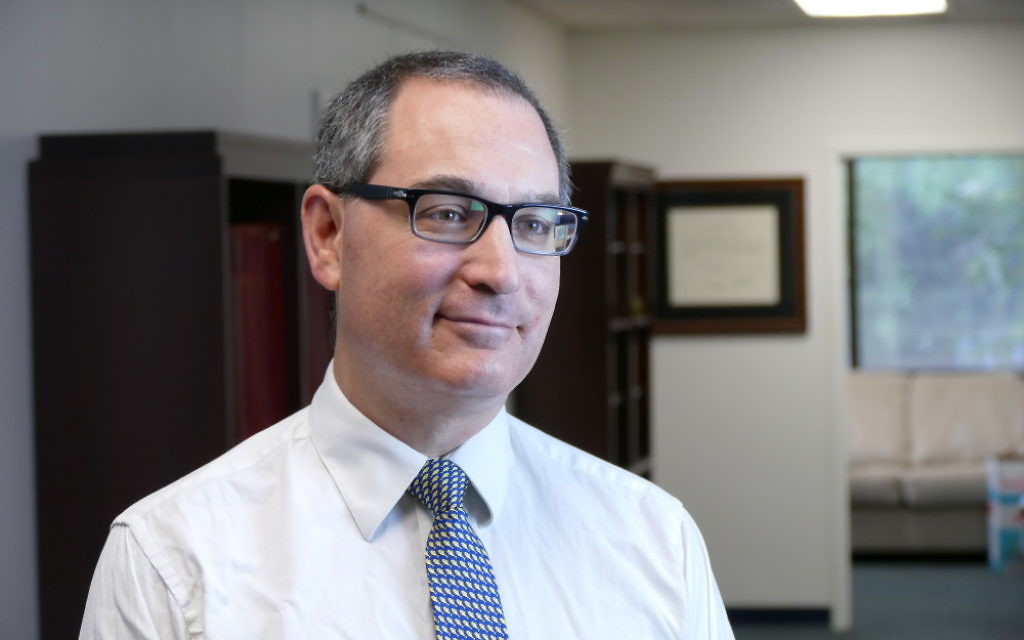Rejection of the ‘Jewish State’
“Asking Israel to be recognized as a Jewish state is like saying, ‘The U.S. is not for Americans; the U.S. is for white folks.’ ”
That was the line Palestinian-American lawyer and George Mason University lecturer Noura Erakat used on CNN in response to Secretary of State John Kerry’s speech Wednesday, Dec. 28. She said the same thing earlier that day on MSNBC.
Her passionate rejection of what should be the easiest issue in the Israeli-Palestinian conflict — the Palestinian acceptance of Israel as a Jewish state, a natural outgrowth of the U.N. vision for splitting the area between the Jordan and the Mediterranean into two states for two peoples — reminded me of New York Times reporter Jodi Rudoren’s visit to Atlanta in May for a J Street discussion about the prospects for peace.
Get The AJT Newsletter by email and never miss our top stories Free Sign Up
Rudoren, a former Jerusalem bureau chief, said that when Israeli Prime Minister Benjamin Netanyahu demanded Palestinian recognition of Israel as a Jewish state as part of a framework for peace talks, she was surprised but thought he was giving Palestinian Authority President Mahmoud Abbas an easy negotiating chip. But Abbas angrily rejected the demand.
Kerry, however, didn’t say anything in his speech about Palestinian resistance to the basic formula of two states for two peoples. Beyond boilerplate lines about rejecting violence and condemning terrorism, he didn’t say much at all in 70 minutes about the Palestinian share of the blame for the lack of a peace process.
The underlying assumption of the Kerry speech was that most people on both sides want a two-state solution; they just don’t trust the other side or have the leaders to get a deal done.
But while polling data and community discourse point to that basic assumption being true on the Israeli side, there’s no reason to believe it applies to the Palestinians. Poll numbers are mixed, and it’s hard to rely on any polling of the Palestinians. If you were living under Hamas or in a refugee camp or under military occupation or amid the corruption of the Palestinian Authority, how honest would you be with a pollster asking sensitive questions?
Rudoren said middle-age and millennial Palestinians generally expect that time will bring them a one-state Palestinian solution, so they don’t accept the idea of a Jewish state.
I’m not on the ground in Hebron, Ramallah or Jerusalem to ask Palestinians what they think, but Erakat took time from her Palestinian activism and public relations to respond to an email seeking clarity about her opposition to the term “Jewish state,” whether a change in phrasing, such as “homeland of the Jewish people,” would be more acceptable, and whether she supports a two-state solution.
Although her reply was not as clear as her rejection of “Jewish state,” it was interesting. She said she fights anti-Semitism in all its forms, but “I don’t believe that a state is the adequate response to the perennial Jewish question, and I certainly don’t think that persecution of Jews justifies the ongoing forced transfer and marginalization of Palestinians.”
That’s not a ringing endorsement of a two-state solution. At best, it’s an acceptance of Jews as residents of a future Palestine.
Erakat is just one person, albeit a person who frequently represents the Palestinian side of issues in American media. But her position poses a more fundamental problem for a two-state solution than the settlements.
As Israel has shown in the Sinai and Gaza, houses can be abandoned and people moved. Or people can put their commitment to being in a particular place above their desire to live as citizens of a particular country. But if Palestinian decision-makers and influencers don’t believe that Jews are a people entitled to a homeland, like the Palestinians themselves, there’s no peace to negotiate.





comments